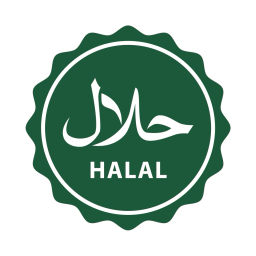Exploring Halal Investment: Navigating the Halal Economy with Islamic Principles

Investing your money in a method conforming to Islamic law (Shariah) is known as halal investment. The Arabic word for "halal" means "permissible". It means, in this sense, that investments follow Islamic morality and social duty.
Key elements of Halal Investment include the following:
• Riba-free: Transactions based on interest are forbidden. This entails avoiding traditional bonds and financial products that produce interest-based returns.
• Businesses that adhere to Shariah: Investments are made in businesses whose operations are not prohibited by Islam (haram). This covers companies not dealing in gambling, pork products, alcohol, or specific financial activities.
• Profit and Loss Sharing: Models of profit-sharing are frequently emphasized in Islamic finance. One such is sukuk, an alternative to bonds that complies with Shariah. In this case, investors participate in the asset's earnings and effectively become part-owners of it.
The Significance of Following Islamic Finance Principles
Some Muslims prioritize Islamic values in finance for multiple reasons:
• Religious duty: Adhering to Sharia law is a fundamental Islamic principle, and money plays a significant role in daily life. Investing in halal allows people to manage their money and maintain their religious beliefs.
• Ethical investing: Socially conscious and ethical investing is encouraged by Shariah principles. It disfavors actions deemed to be exploitative, such as high interest rates.
• Fairness and transparency: Islamic finance places a strong emphasis on these two aspects of financial transactions. Those who favor ethical business operations may find this appealing.
How the Halal Economy concept works?
A wider definition of the term "halal economy" is the production, supply, and use of products and services that adhere to Islamic law. An essential element of this ecosystem is halal investing.
Beyond banking, the Halal economy includes several industries, such as:
• Food and Beverage: Creating and consuming food in accordance with Islamic dietary regulations.
• Travel and Tourism: Services that meet the halal cuisine, prayer facilities, and other needs of Muslim travelers.
• Fashion: Dressing in accordance with Islamic standards.
• Sharia-compliant financial goods and services are referred to as Islamic banking and finance. Growing demand for ethical products and an increasing Muslim population have propelled the growth of the Halal sector in recent years.
Understanding Halal Investment
Guidelines for Investing under Shariah:
Investments place a strong emphasis on sharing risk and return. Profit and loss sharing with the issuer is a feature of models like Sukuk, which are comparable to partnerships.
• Transparency: Financial dealings ought to be honest and free from dishonesty.
• Underlying Business Activities: Halal-focused businesses are the focus of investments, with the following exceptions:
• Prohibited Goods: pork products, alcohol, and other commodities that are prohibited.
• Adult entertainment: gambling, and related enterprises are examples of sinful activities.
• Uncertain Activities: Activities with a lot of uncertainty or components akin to gambling are considered very risky.
Prohibited Industries and Pursuits
• Non-Halal Products: Companies that manufacture or distribute tobacco, alcohol, pork, and other prohibited items.
• Financial Services: Traditional banks with an interest-based revenue stream. Islamic banking provides options that adhere to Shariah.
• Unethical Labour Practices: Industries with unethical labor practices include adult entertainment, gaming, gun production, and the manufacturing of weaponry.
Investment Ethical Considerations:
• Social Impact: Investing in businesses that have a positive impact on the environment and society is known as social impact.
• Equity & Justice: Steer clear of businesses that mistreat their employees or engage in other forms of labor exploitation.
• Sustainability: endorsing businesses that uphold environmental sustainability and prudent resource management.
Differentiating between Halal and non-Halal investments
• The most important component is business activity: Investments classified as halal concentrate on businesses that follow Shariah regulations. This doesn't include companies engaged in the production or distribution of commodities that are prohibited, such as tobacco, alcohol, and pork.
• Sinful activities: include manufacturing weapons, adult entertainment, and gambling.
• Unethical practices: Depending on how Shariah is interpreted, companies that engage in unethical labor practices, excessive debt, or environmental damage may be subject to restrictions.
• Financial securities: Halal investments stay away from traditional bonds and loans, which are interest-based securities. They could make use of alternatives that adhere to Shariah, such as Sukuk (profit-sharing certificates).

Recognizing Investments That Are Not Halal:
• Look for the blatantly obvious: Businesses that produce or market pork, alcohol, or other prohibited goods are unquestionably not Halal.
• Financial Activities: Halal investments are typically not made in conventional banks or companies that primarily rely on interest revenue.
• Pay attention to the fine print: examine the sources of income and debt of a corporation. Certain Shariah interpretations may consider excessive debt to be a warning sign.
How to Recognize Halal Investments?
Shariah compliance: A large number of financial institutions offer investment products that have received Islamic scholars' approval and are Shariah compliant. Seek out respectable organizations with an open certification procedure.
Pay attention to the underlying business: Examine the main business operations of the corporation and their revenue-generating strategies. Do they conform to Islamic principles?
Seek Advice from an Expert: Based on your investing objectives and risk tolerance, a knowledgeable Islamic financial counselor can offer advice. They can guide you through the difficulties of investing under Shariah.
The Significance of Halal Investment in Islam
Islam provides a distinct viewpoint on money and investments by stressing morality in addition to profit. A summary of the main ideas is provided below:
• Wealth in the form of a Trust:
We view wealth as a gift that Allah (God) has bestowed upon us.We take responsibility for the way we get and use our money.
• The Value of Having Halal Income:
Getting Halal income, or money obtained legally, is a fundamental idea.Income from unlawful activities such as usury, gambling, or the sale of prohibited products is not included in this.
• Aligned Investment with Values:
Shariah rules should be followed when making investments, and forbidden industries should be avoided.Achieving moral and societal good in addition to financial return takes precedence over maximizing profit.
• Significance of Zakat:
All Muslims who have wealth above a particular level are required to pay zakat, a charitable requirement.It encourages social responsibility and the redistribution of wealth.
Real-world Case Studies of Successful Halal Investments:
Islamic microfinance: These organizations support financial inclusion and the battle against poverty by offering financial services to the impoverished following Shariah principles.Initiatives for infrastructure development backed by Sukuk include Sukuk, a Shariah-compliant bond substitute that promotes social and economic progress, principles, treating employees well, and conserving the environment.These businesses show that halal values may promote both financial success and positive social effects.
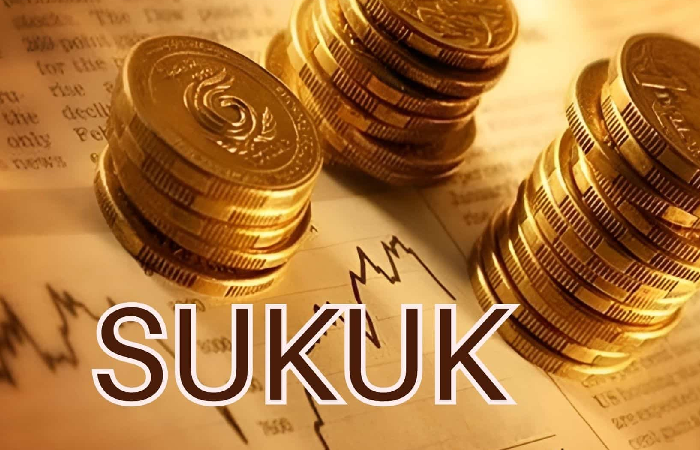
Investment in Halal Has Its Advantages:
• Peace of mind: You may feel at ease knowing that your investments align with your religious beliefs.
• Investing ethically enables you to support companies that share your beliefs.
• Robust growth potential: The halal economy is a rapidly expanding industry category that has appealing prospects for investment.

Exploring Halal Investment Opportunities
Purchasing halal goods allows you to follow Islamic law and amass riches. Here is a list of well-liked halal investment options along with guidance on assessing their viability:
Prospective Halal Investments:
Islamic banking and finance: Islamic banks operate differently from conventional banks. They employ profit-sharing as the basis for product sales rather than interest. This may include Islamic savings accounts, Islamic house loans, and Sharia-compliant investment accounts.
Shariah-compliant stocks and equities
Securities and investments that comply with Shariah: There are chances to invest in companies that operate under Islamic law. Businesses that sell cigarettes, alcohol, gambling, or porn are not allowed to hold Islamically compliant stocks. Find stocks that adhere to Shariah by browsing through several websites.
Investments in halal real estate: If a property complies with Sharia law, it may be considered halal. This means the property and the financing package need to be halal. For instance, renting a property instead of purchasing one with a traditional mortgage may be preferable.
Sukuk, or Islamic bonds, and investment funds: Islamic bonds, sometimes referred to as sukuk, are asset-based rather than debt-based.
Investing comparable to Sukuk includes buying stock in an underlying asset, like a firm or a piece of real estate. When the Sukuk issuer invests the proceeds in the asset, you receive a portion of the returns.
Money from investors is consolidated and allocated among securities that follow Sharia law by Islamic investment funds.
Assessment of Halal Investments:
To ascertain whether halal company operations are profitable and feasible, the following aspects need to be taken into account:
- Verify whether the investment complies with the sharia regulations established by an established Islamic organization.
- Examine both the recent and historical financial outcomes of the underlying assets.
- Evaluate the long-term growth potential of the investment.
- Determine and assess the potential hazards linked to the particular investment.
Examples successful Halal investment ventures
The building of a sustainable hospital was financed by the sale of Sukuk bonds. This Sukuk issue is one example of how Islamic finance could be used to advance social justice. The business not only produced money for its investors but also supplied essential medical care.
An Islamic equities fund that invests in businesses that adhere to strict environmental, social, and governance (ESG) standards is one example. This illustration shows how halal investing and ethical and ecological investment standards can coexist.
Principles of Halal Economy
The Halal economy is a rapidly growing sector. It caters to the needs of Muslim consumers. A wide range of Islamically acceptable products, services, and financial instruments are offered by it. This is in addition to halal food.
The Halal Economy
The phrase "halal economy" refers to an economic structure based on Islamic principles and values. This is based on the principles of Quran and the teachings of Prophet Muhammad (PBUH). Here are some essential components:
Halal Food: Muslims are allowed to eat the goods and services classified as halal. These include food that has been slaughtered in accordance with Islamic law. Modest clothing and interest-and usury-free financial transactions.
Ethical behavior: Businesses that market halal products have a need to act morally. This covers social responsibility, environmental sustainability, and fair trade methods.
Sharia compliance: Sharia law should be followed in every facet of the halal economy, from production to consumption. This guarantees that Muslim customers can confidently engage in the economy.
The Halal Economy's Moral and Ethical Foundations:
Morality and ethics form a solid basis for the Halal economy. The following are some fundamental ideas:
- Justice and equity: Islamic teachings place a strong emphasis on treating each party fairly when engaging in business dealings. This covers reasonable labor costs, reasonable product prices, and ethical company conduct.
- Social responsibility: Halal companies are urged to support the community's welfare and make a positive impact on society. This can entail making jobs available, contributing to philanthropic initiatives, and supporting social issues.
- Sustainability: The Halal economy encourages environmental conservation. This entails conserving resources, cutting down on waste, and safeguarding the environment for next generations.
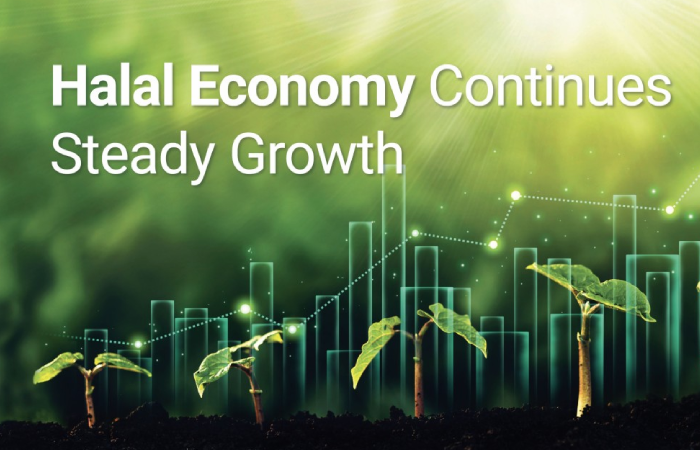
The Role of Halal Businesses in Economic Development:
Halal food businesses have the potential to greatly boost economic growth, particularly in countries where the majority population is Muslim. They have the following effects, to name a few:
- Businesses that sell halal products have the power to employ Muslims and non-Muslims alike.
- The halal economy is a major driver of economic growth in many countries. It raises domestic demand, attracts international investment, and expands exports.
- Islamic financial solutions allow Muslims who might not otherwise be able to access standard banking systems to do so.
- Halal enterprises can positively influence society by promoting moral behavior, supporting healthcare and education initiatives, and fostering community development.
Challenges and Solutions in Halal Investment
Exciting investment prospects can be found in the halal landscape, however there are significant obstacles based on regulations and the market. The main issues and possible fixes are broken out as follows:
Regulatory Challenges for Investment in Halal:
- Lack of uniformity: Scholars and geographical areas may interpret Sharia differently. As a result, investors are left feeling uneasy, and it becomes challenging to establish a genuinely worldwide Halal investment industry.
- Regulation gaps: The absence of laws pertaining specifically to Islamic finance in some nations makes it difficult for Halal financial institutions to conduct business.
- Limited product offerings: Compared to conventional options, the selection of Sharia-compliant financial products may be more constrained, which could limit investor choice.
Addressing Myths Regarding Halal Investing:
- Reduced returns: There's a misperception that investing in halal products would always result in lesser returns. This isn't always the case, though, because halal investments might include a range of asset classes with different potential returns.
- Limited room for expansion: The halal economy is expanding quickly and presents chances across a range of sectors with room for expansion.
- Exclusiveness for Muslims: Anyone looking to invest in halal financial products that adhere to Sharia law is welcome to do so.
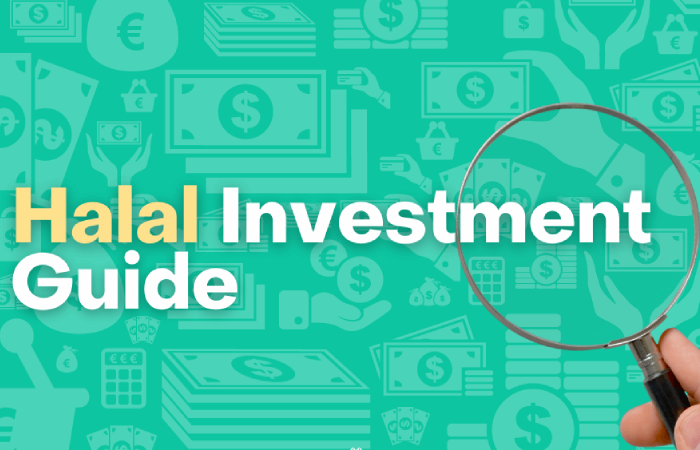
Strategies for Overcoming Investment Barriers for Halal:
- Standardization initiatives: International standards for financial goods that adhere to Sharia law are being developed. This will boost investor confidence and make international investment easier.
- Harmonization of regulations: By collaborating, governments and regulatory organizations may establish a more favorable environment for Islamic finance that will foster development and innovation.
- Education of investors: Increasing knowledge of the advantages and prospects of Halal investing can draw in a larger group of potential buyers. This entails clearing up misunderstandings and emphasizing the moral and financial benefits.
- Product development: To meet the needs and risk tolerances of a varied investor base, financial institutions can create a greater variety of creative Sharia-compliant investment products.
- Adoption of technology: Using blockchain technology, for example, can improve the accessibility, efficiency, and transparency of Halal investments.
The halal investment scene can thrive by resolving these issues and putting sensible plans into action. Both Muslim and non-Muslim investors who are looking for morally sound and Sharia-compliant investment options that support a more diverse and long-lasting global economy would profit from this.
Future Prospects of Halal Investment
The growing Muslim population, expanding consumer awareness, and broader acceptance of Islamic ideals in corporate practices are all contributing to the phenomenal expansion of the halal industry. Here's a closer look at the potential of this vibrant sector:
The Halal Economy's Potential for Development:
The halal economy includes a wide range of sectors, such as:
- Food & Beverage: The biggest category, with halal meat, processed foods, and beverages seeing an increase in demand.
- Fashion: Islamic dress norms that call for modest apparel are becoming more and more popular worldwide.
- Islamic Finance: Sharia-compliant financial products such as takaful (Islamic insurance), Sukuk (Islamic bonds), and Islamic banking are expanding significantly.
- Travel & Tourism: Halal tourism targets Muslim tourists looking for places to visit that accommodate their cultural customs and religious beliefs.
- Pharmacies and Cosmetics: The demand for products devoid of alcohol or substances derived from animals is growing, which is propelling the expansion of the Halal pharmaceutical and cosmetics industries.
Some of the factors driving this rise are:
- Increasing Muslim population: It is anticipated that the number of Muslims worldwide would rise, increasing the market for halal goods and services.
- Growing awareness: The need for ethical and ecological products is being driven by customers, both Muslim and non-Muslim, becoming more aware of the ideals of Halal.
- Globalization: As trade and travel between countries increase, so do the potential for Halal enterprises to access new consumers.
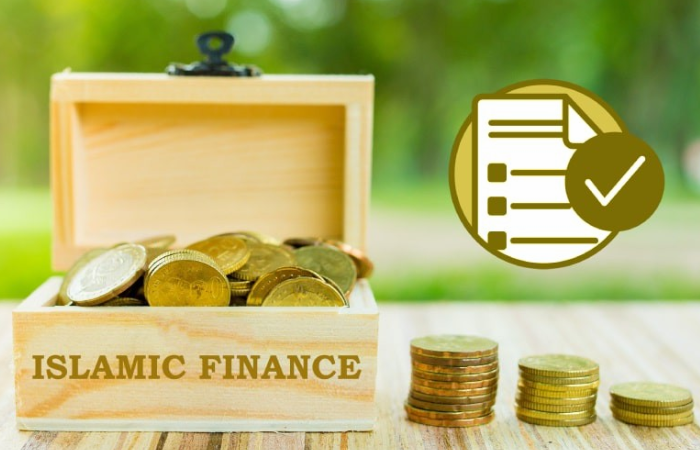
New Developments in Halal Finance:
The landscape of halal investments is continuously changing, with new trends developing.
Emphasis on Sustainability: Halal investments that give top priority to environmental, social, and governance (ESG) factors are becoming more and more sought after by investors. This is in line with Islamic values of resource conservation and social duty.
Fintech and Blockchain: Halal investments are increasingly reliant on technology. Fintech solutions have the potential to improve Sharia-compliant financial services' accessibility, efficiency, and transparency. Blockchain technology can guarantee transparent and safe record-keeping for transactions involving halal food.
Impact investing: Halal investments that produce both financial rewards and a beneficial social and environmental impact are attracting the attention of investors. This is in line with the moral and socially conscious tenets of the Halal economy.
Sukuk Innovation: To provide a greater range of investment needs, new Sukuk structures are being developed. This comprises Social Sukuk, which promotes social development programs, and Green Sukuk, which funds sustainable projects.
Advances in Financial Products Compliant with Shariah:
Financial institutions are creating cutting-edge Shariah-compliant goods to satisfy changing investor demands:
Equity-like Sukuk: These Sukuk offer returns that are correlated with the performance of the underlying assets, potentially yielding better returns for investors who are more willing to take on risk.
Islamic investment funds: These funds provide investors with exposure to a variety of industries while reducing risk by investing in a diversified portfolio of Sharia-compliant assets.
Peer-to-peer (P2P) Financing Platforms: P2P platforms that adhere to Sharia law are starting to appear, enabling people to make direct investments in Sharia-compliant companies or initiatives.
These developments are increasing the appeal of Halal investments to a larger group of investors, which is promoting the expansion of the Halal sector overall.
Conclusion
With tremendous room for expansion, the halal economy offers a vibrant and attractive environment. As the global Muslim population increases and consumer awareness rises, there will likely be a steady growth in the demand for Halal products and services.
Here are some essential lessons to keep in mind:
- Investors seeking a combination of beneficial effect and financial benefit are drawn to the Halal economy because it is based on strong ethical ideals such as sustainability, social responsibility, and justice.
- The halal economy offers a wide range of investment options, spanning from food and banking to travel and tourism.
- For more efficient operations and investor trust, continuous efforts are needed to address standardization challenges, regulatory loopholes, and misconceptions.
- New financial products that adhere to Sharia law and technological breakthroughs are driving the halal investing market.
Through creativity and problem-solving, the halal economy has the ability to grow and have a positive influence on a more moral, inclusive, sustainable, and global economy.
